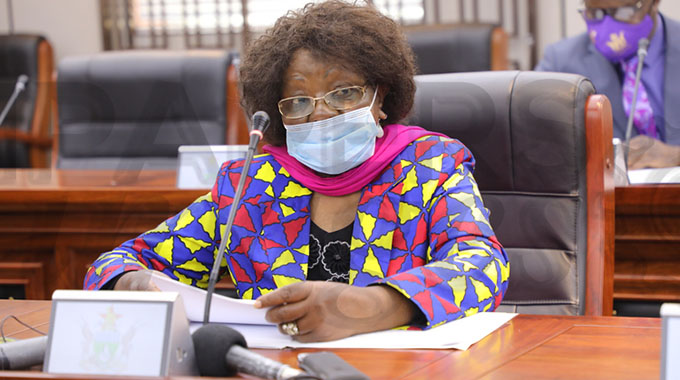‘Violence against women must stop’

Ivan Zhakata
Herald Correspondent
Violence against women is regrettable and should stop forthwith, Women’s Affairs, Community, Small and Medium Enterprise Development Minister Sithembiso Nyoni said yesterday in remarks at the start of the global campaign of 16 days of activism against Gender Based Violence (GBV).
The 16 Days of Activism against GBV are marked from November 25 to December 10 every year.
This year’s theme is, “Orange the World: Fund, Respond, Prevent, Collect!”
Already, the Public Service Commission has come up with a Draft on Sexual Harassment, with input from stakeholders expected in crafting a strong policy that sets out the legal responsibilities and obligations of civil servants to comply with the law.
Minister Nyoni wants women to amplify their voices against GBV and support survivors.
“It has also been realised that gender based violence results in huge economic costs for the country as its negative effects results in increased burden on the health system and other response systems,” Minister Nyoni said.
“Resources spent in responding to GBV, if redirected towards the development of the country, will contribute immensely to the country’s gross domestic product. Gender based violence takes place in all spheres of our daily lives, within our homes, work places, in public places and it is therefore everyone’s responsibility to stop this vile practice.”
The Women’s Affairs ministry is implementing a number of initiatives to address GBV, which include setting up of one-stop-centres for GBV survivors and establishing self-markets.
There are plans to train district stakeholders on mainstreaming GBV in humanitarian action and provide transport support to survivors and witnesses.
Minister Nyoni said her ministry remains committed to ensuring GBV is effectively addressed
The Public Service Commission has said that progress in dealing with sexual harassment was slow owing to reluctance on the part of many victims to come forward, mainly due to fear of retaliation.
In a statement, the PSC said as the service regulations stand, there was no clear definition of sexual harassment nor specific penalties for dealing with it.
“The other shortcomings with the regulations are that generally a complaint of sexual harassment must be made to a member in a position of authority (the head of office or department), who may be the actual perpetrator and there is no built-in procedure for disputes to be settled initially by means of conciliation.
“Having noted these shortcomings and with the ultimate goal of creating a safe working environment for all, the Commission came up with a ‘zero draft’ on sexual harassment, after which input was widely solicited from all stakeholders to craft a water tight policy which sets out the legal responsibilities and obligations of members in the Public Service in compliance with the law.”







Comments